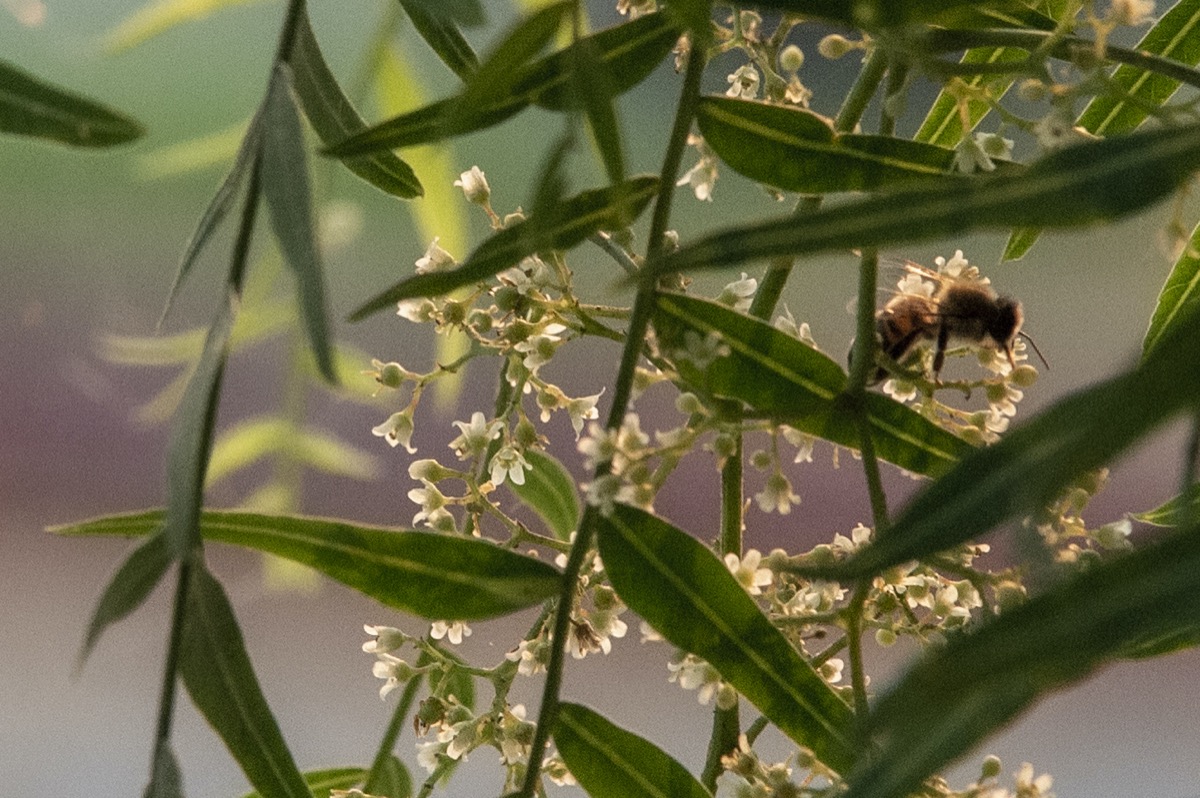
As we noted a few years back, this is the century in which humanity will re-deepen its relationship with its surroundings. The reality is, we’ll either have to do this consciously and deliberately, in the process of extricating ourselves from our climate peril, or we will reconnect inadvertently and reactively as we learn to live on a diminished planet with an unfamiliar and hostile climate.
Certainly for some, the pandemic provided an instructive opportunity to slow down, pay attention to the natural world, and get connected. Today, as we write these words, the California pepper trees in our front yard are providing just that kind of opportunity. Though it’s not spring, they are in blossom now and a welcome source of non-political conversation on our street.
Did you know that every single peppercorn that ends up in your pepper grinder starts as a blossom? Every year those minuscule yellow flowers explode in clusters and turn the trees into resonant bee clouds that buzz for weeks. Young parents on the sidewalk wander right into it, then flee across the street behind their strollers. But they’re in no peril — these bees are obsessed with their work and seldom rest long enough even to pose for a clear photograph.
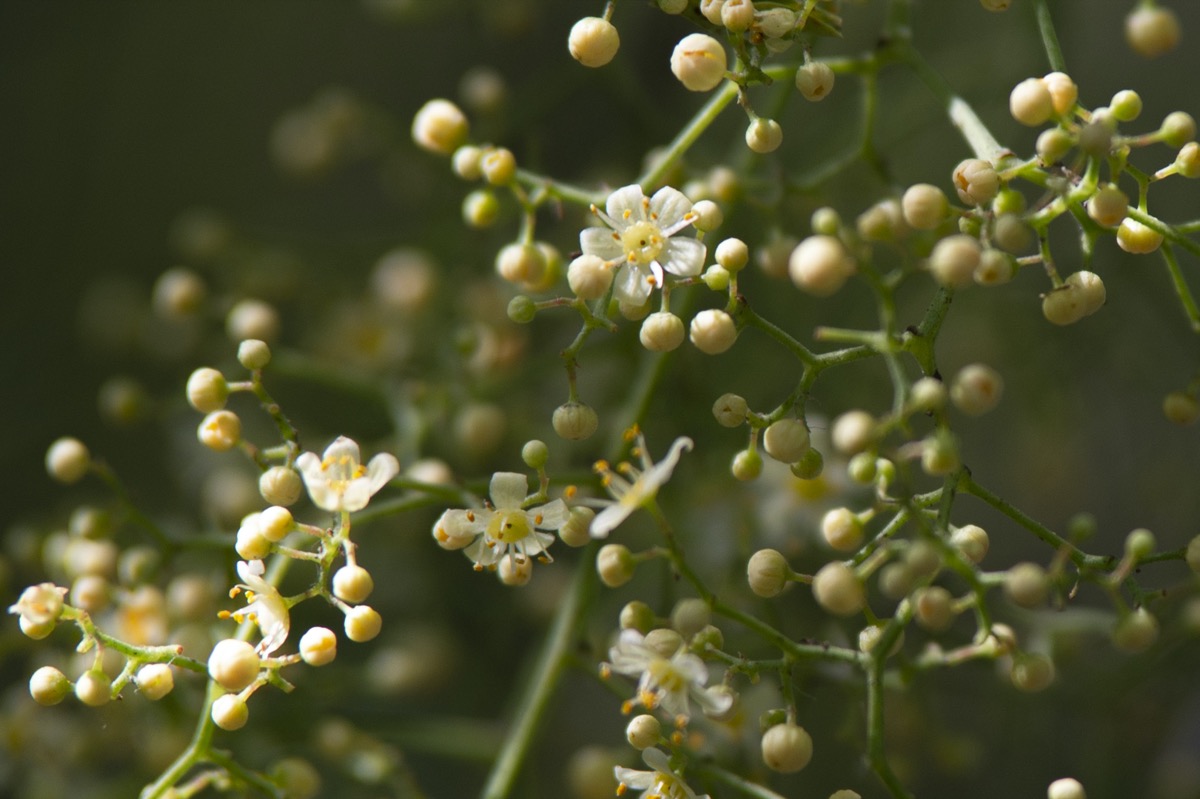
Our old posts on California almonds and white clover got us thinking about the precarious condition of the honeybees — the farmed ones and the wild ones, respectively — and how tied that species is to us humans. Farmed and wild bee populations may or may not be the equivalents of our salaried workers and independent contractors, but either way their labor is just about as big business as that of their human counterparts. Honeybees and other pollinators are responsible for perpetuating 70 percent of the world’s food crops. Alone, the aforementioned almond farms of California’s Central Valley require the labor of half of the honeybees in the United States.
To say the least, wherever go the honeybees, we go too. And so it is with the oceans, the soil, the rivers, the atmosphere right up to the Karman Line, the entire food chain from the tiniest insect to the largest lion… and one another.
(An observation hopelessly kumbaya not long ago. Today: life and death!)
While human connection may seem like an especially hopeless aspiration at a time like this, on the other hand, what connects us more than the climate? What connects us more than the air we breathe? Our giant air bubble connects every demographic with every other demographic. For instance, in China’s smoggiest years, citizens consoled themselves, mostly accurately, that their leaders, for all their luxuries, had to breathe the same air they did. And indeed, China invested trillions to claim global leadership in energy technology to move us all beyond dinosaur fuel, and indeed the lungs of all China’s economic strata are reaping the rewards. For that matter, so are ours outside China as the cost of solar plummets and more of us are able to make smart climate decisions as a result.
No one is immune to bad air locally, and no single country is immune globally. Neither is any nation wealthy enough to solve the crisis by itself. What do all 7.8 billion of us humans share, if we don’t share the climate systems that roll over countries and cross borders with the ease of post-internal-combustion engines blowing by mileposts? What can bring us together in all our diversity, if not a shared investment in a healthy climate with its byproducts of healthy oceans, recognizable seasons, and familiar latitudes and longitudes?
Bees Aren’t Distracted by Human Abstractions
If we’re going to get this done — and the 2020s are the last decade in which we can — we need to move past both nationalism and globalism, isms that divide and separate. We need to ditch those isms in favor of building new intra-human neural pathways for the kind of collaboration that will be necessary for us to confront the challenges ahead of us: challenges that care as little about borders or other human abstractions as do these honeybees who remain so fixated on their work… with utter disregard for whether they’re in Canada or the United States, or in Luxembourg or Belgium, or in North or South Korea, or in Kashmir or any part of Cyprus.
These here bees are as un-national as any migrating bird. They don’t care. They just get it done. Like we now have to.
The era of globalism brought the honeybees habitat devastation, indiscriminate global pest control, wild climate fluctuations, varroa mites and other bugs of all sizes, and whatever other factors cause colony collapse disorder, and the bees carried on with their work anyway. By contrast, we looked at factors like the widening gap between rich and poor and allowed the toxicity of nationalism to seep back into the human condition.
The rise of nationalism on a scale of all humanity wasn’t a bump in globalism’s road. Globalism is an irredeemable wreck alongside the aforementioned highway of history. Yes, the trade-connected globalist world had its benefits (unprecedented global prosperity and stability among them), but it was a cold and mechanical relic of the 20th-century industrial and post-industrial mania for growth. In the end, the 2016 crippling of the Trans-Pacific Partnership shed a harsh light on a United States divided largely by economics, a Europe in danger of unraveling for the same reason, and an ascendent China whose belts-and-roads moneybag diplomacy had nonetheless reached its peak. Small countries had not failed to notice their enduring marginalization any more than the poor in the “developed” economies failed to notice the rich pulling further ahead with every year.
And so the people reacted with the tired flags and stale ideas and dead language of nationalism, supporting anachronistic leaders like Trump, Duterte, Bolsonaro, Erdoğan, Orbán, and Modi, along with Putin and Netanyahu in their resilience. Meanwhile Europe’s softened borders — truly a monument to connectedness — began to harden once again.
Unsurprisingly, the world has not profited from these old-fashioned leaders with flag-waving and border-closing ideas — what solutions have they contributed in any meaningful way to twenty-first-century problems that all transcend national borders, with climate change just one of many?
The financial integration of globalism was not necessarily a bad thing. The problem was that the objectives of globalism were fundamentally financial, and the goal growth at all costs. International cooperation wasn’t happening at the barrel of a gun, but it did have strings attached — it was international inclusion with interest, kept aligned by a bottom line measured in GDP, but also driving a poverty of ideas, of populations, of species, of climate.
Globalism as we knew it had outstayed its welcome. But nationalism was not the replacement anybody needed.
If Globalism Is Dead and Nationalism Is Toxic, Do We Need a New Ism with Purpose?
Can we just get rid of these giant systemic isms without replacing them with another? For sure, labeling something is a great way to rob it of its meaning. On the other hand, perhaps a new ism could be a bugle cry as we aspire toward common goals of a scale that we have never needed to reach before.
Globalism is in fact dead, but what killed it wasn’t so much the way the financial system was structured, or the way rising debt has created financial activism, or even specifically the rising chasm between rich and poor (to use Michael O’Sullivan‘s three-pronged prognosis). Rather, once the financial system had integrated about enough as it ever would, the culprit that killed globalism was a lack of a specific defining purpose.
And if global warming gifts us with anything, it gives us purpose.
The new guiding ism could speak to knowledge, ideas, and resources that do not have their roots in any one country or population, or even, indeed, in humanity itself. The idea of survival in a changing climate is so vast and so universal that it renders meaningless not only borders, but also the way we think about ourselves separately from our natural context. And so, internationalism, for all its historical positivity, may keep too much baggage in its nation trunk. So then you have history’s other charming ism — cosmopolitanism, with its “citizens of the world” connotation. Cosmopolitanism has the benefit of sharing a root with cosmos, but it does have the baggage of sounding like a specific, unhelpfully urbane, human category.
Recognizing the integration of our fate with that of the bees, maybe the ism should rise above the human community altogether, relating us instead to our larger context. An ism that could speak to a single collective aspiration so large it exceeds humanity, a word so large it exceeds even our earth with its complicated systems, that pulls the camera back past the atmosphere and looks at the whole of us. Something… almost… super-religious in its scale. Got one?
Universalism, a word from religion, speaking of all religions, looking from that perspective beyond religions. An ism beyond human categories — all fields, all demographics, all karasses — ditching the categories and so eliminating the friction between us and a livable future.
If we become univeralists, and act with universality, then if there is a new way of building a dam, more efficient than the old kind of dam, better for the fish than the old kind of dam, then the rivers themselves should have it.
If we act with universality and a smokestack can be replaced by a thousand inert, carbon-neutral solar panels, the downwind area must have it and the ten thousand labor hours must be invested to decommission one and install the other.
And if we are to be universalists and there is a way to restore coral, or put carbon back underground to improve soil and cool the earth, then the soil itself, the earth itself, the coral itself, the ocean itself, and humanity itself, should all work together and have it.
We’re probably not going to haunt the halls of the UN or CNN to lobby for universalism, but we present it here in the spirit of brainstorming. Whether it is unifying ourselves under a mind-opening ism or dumping the abstractions altogether, we must do whatever it is takes to connect with the world.
Because if we are really paying attention to something, like these bees and their blossoms in these trees here, we connect them to ourselves, consider their future as one with our own, and we must act.
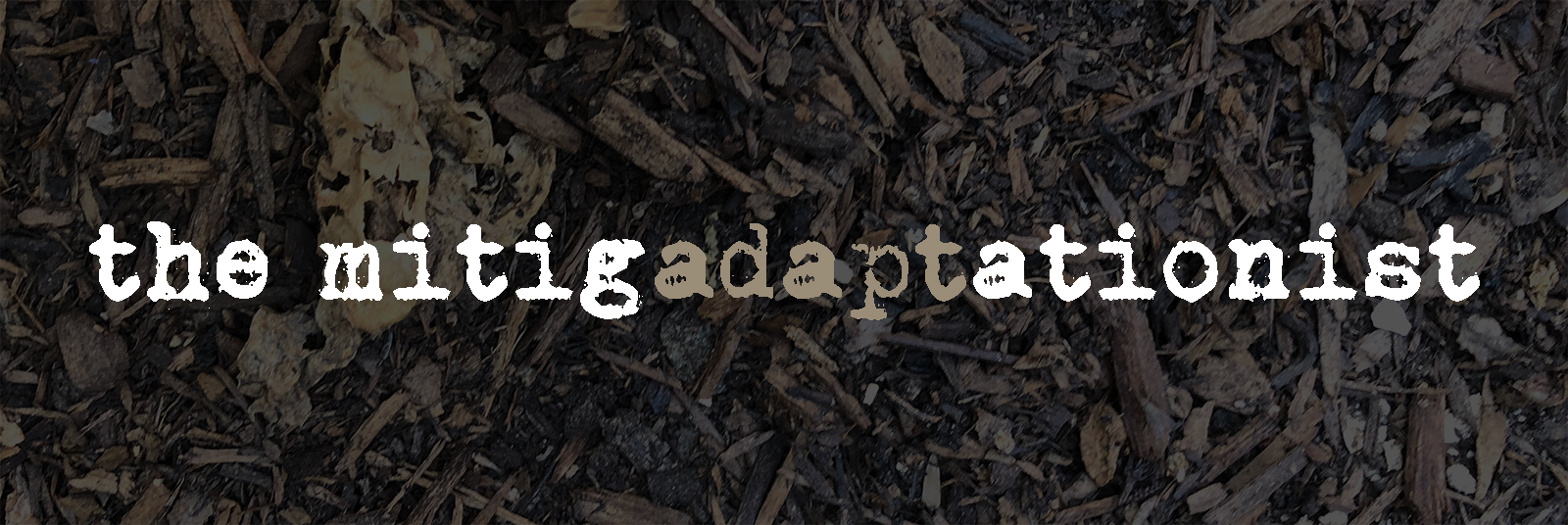
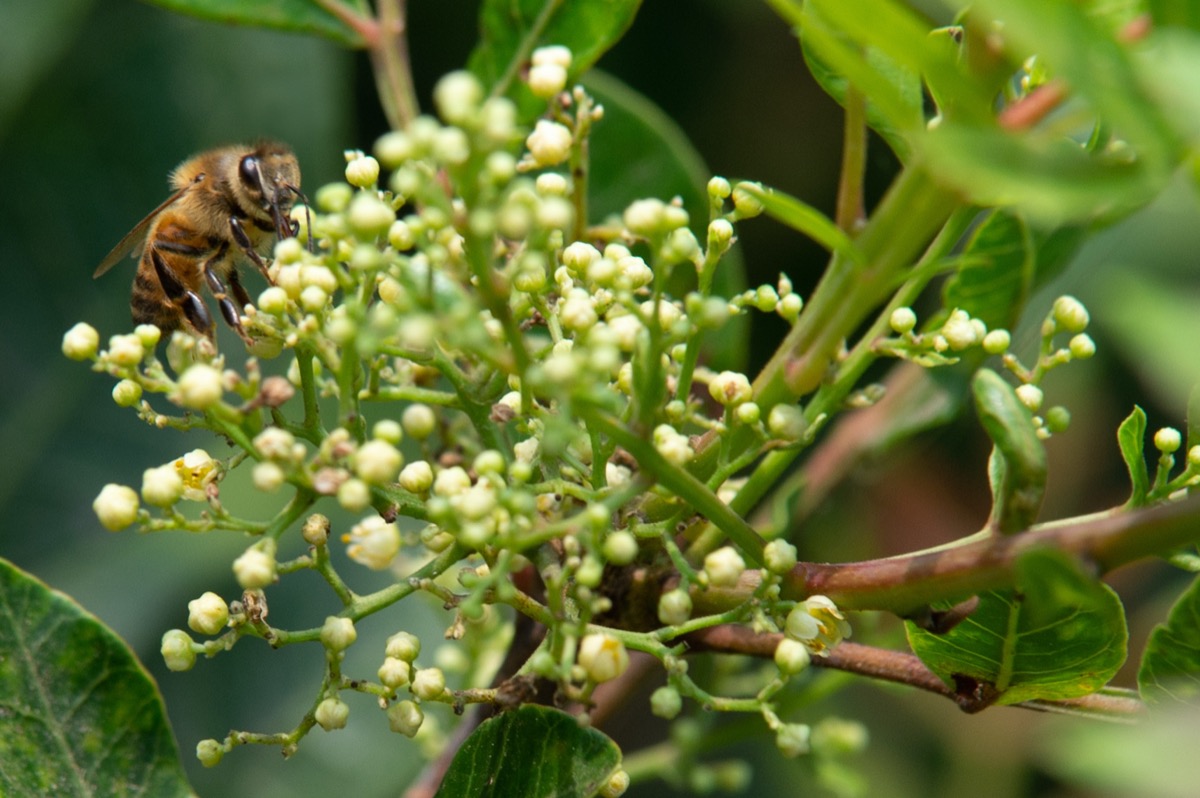
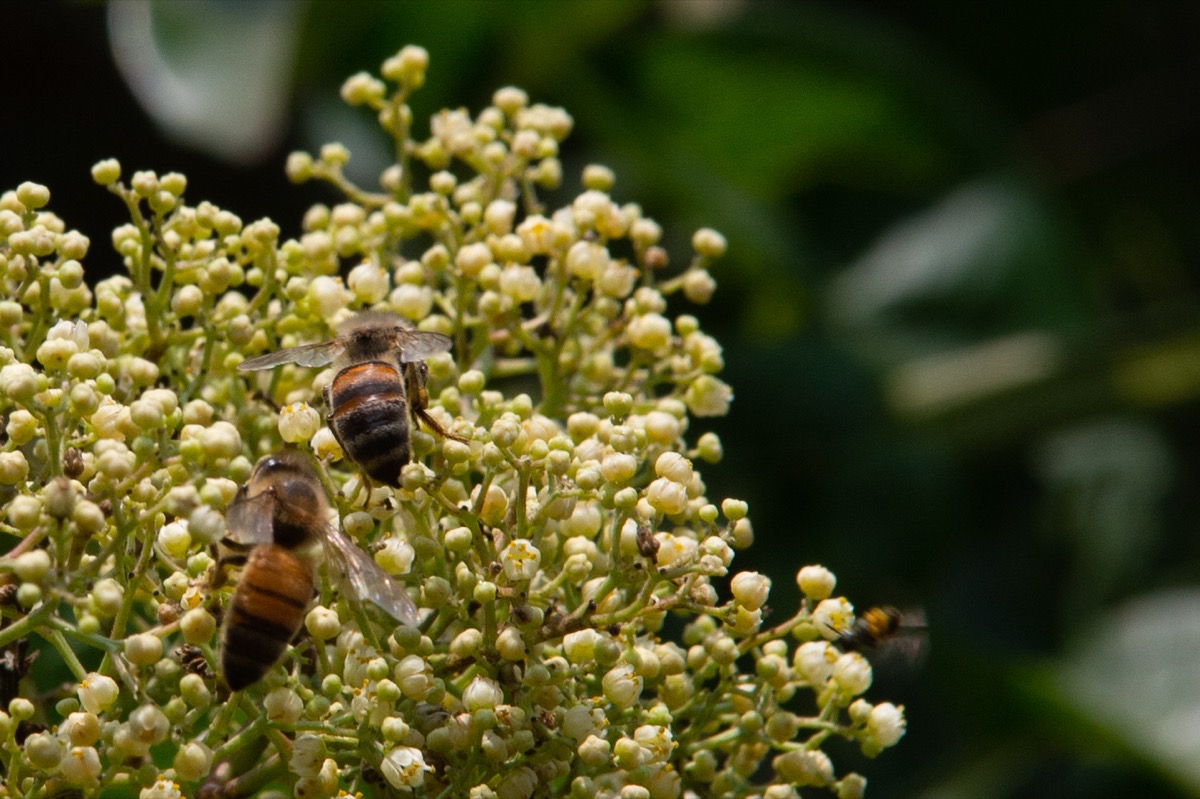
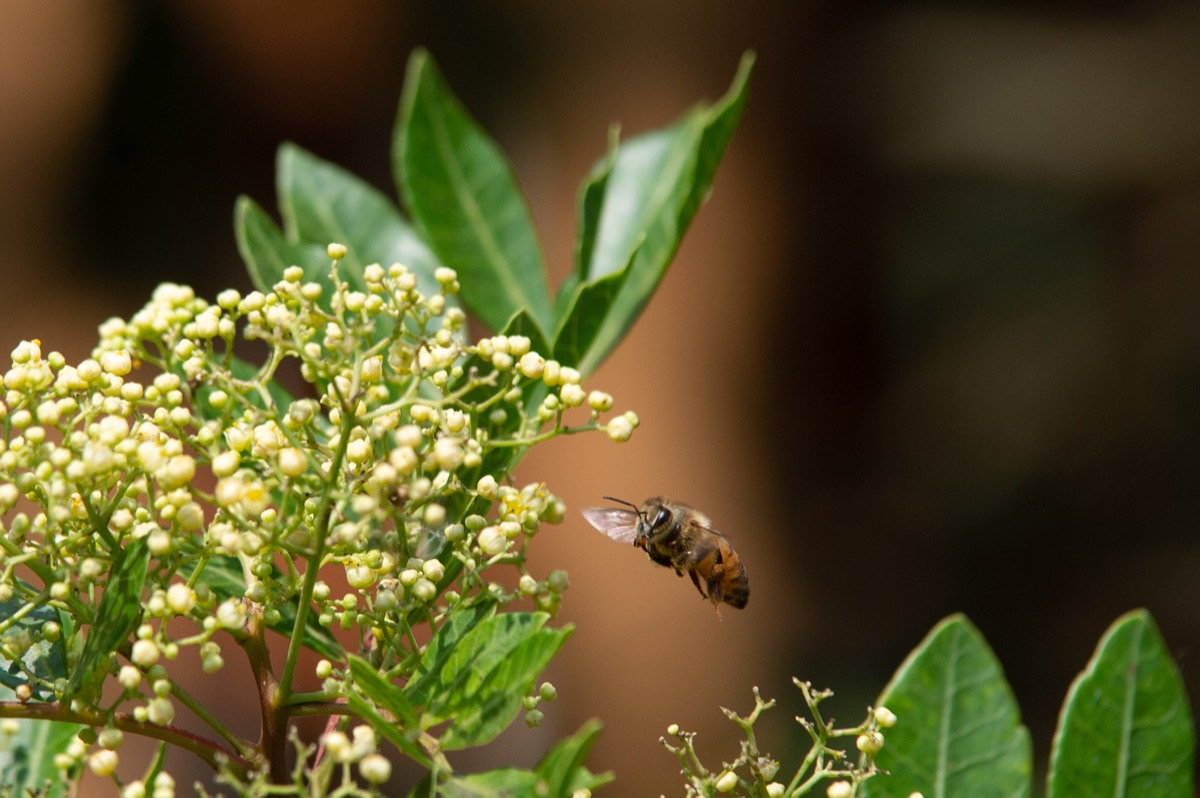

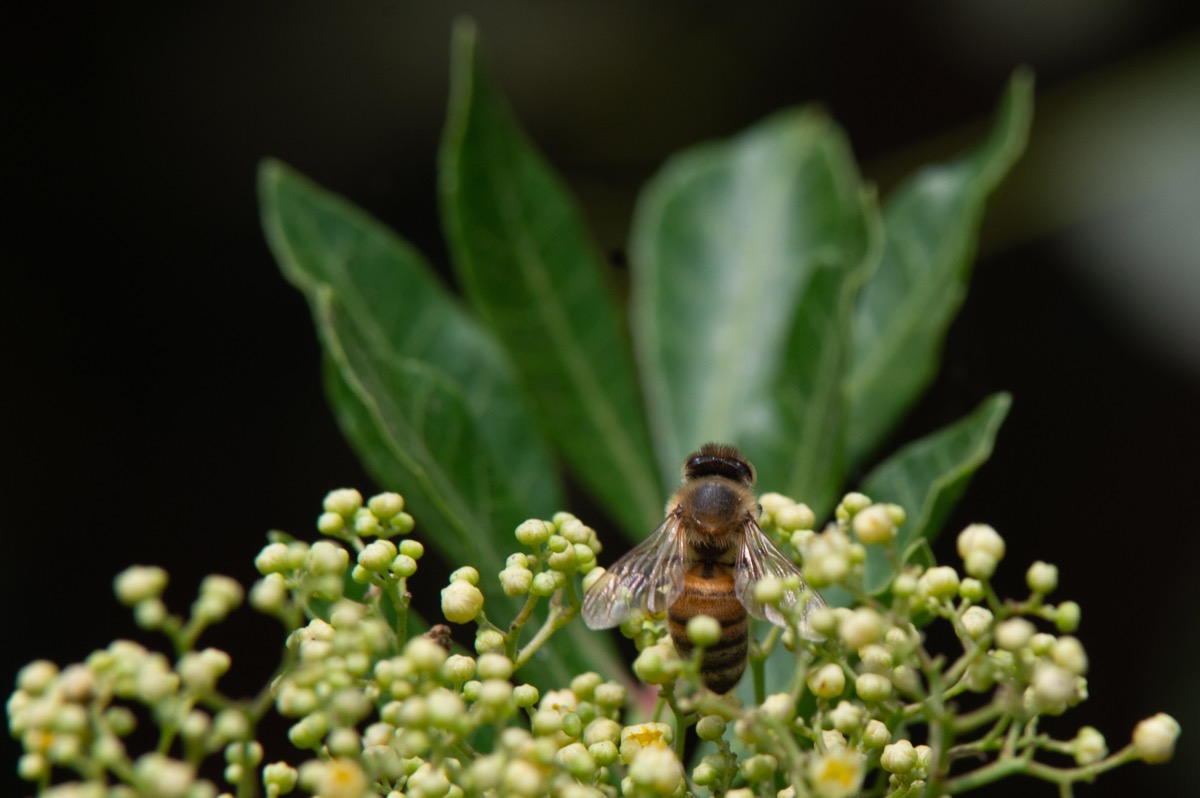
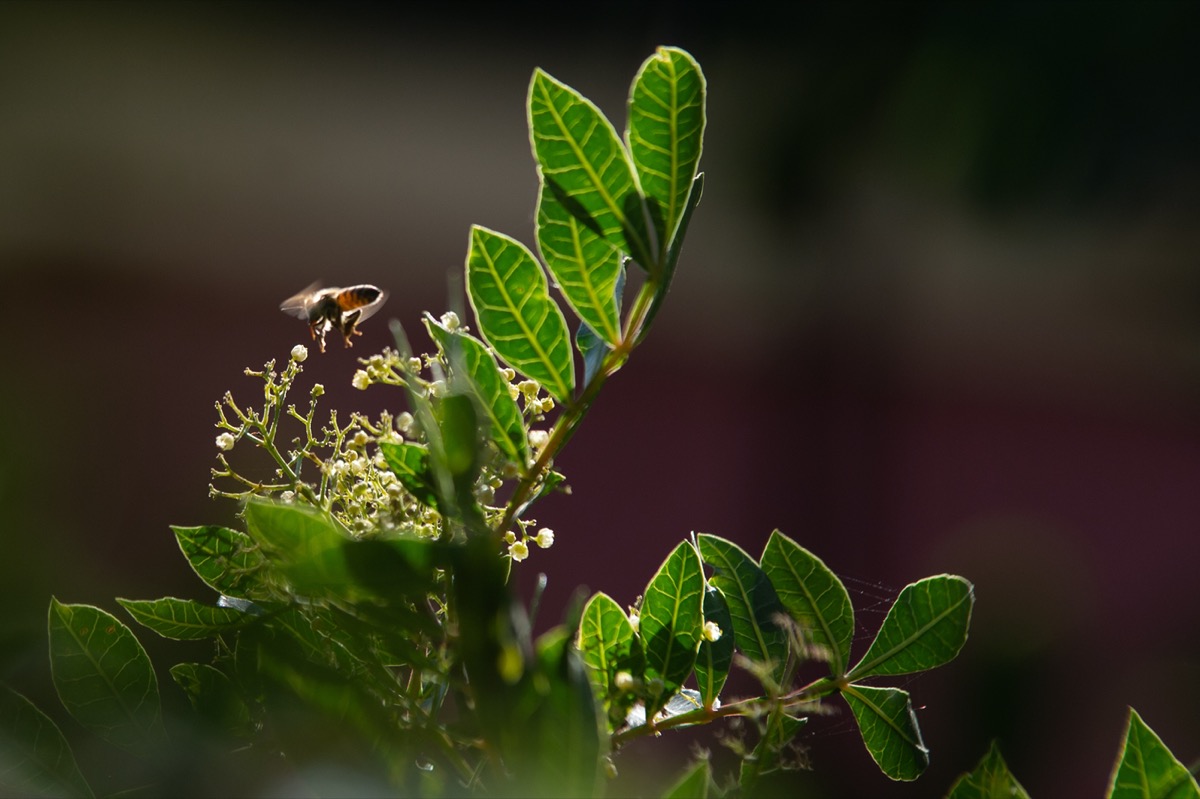
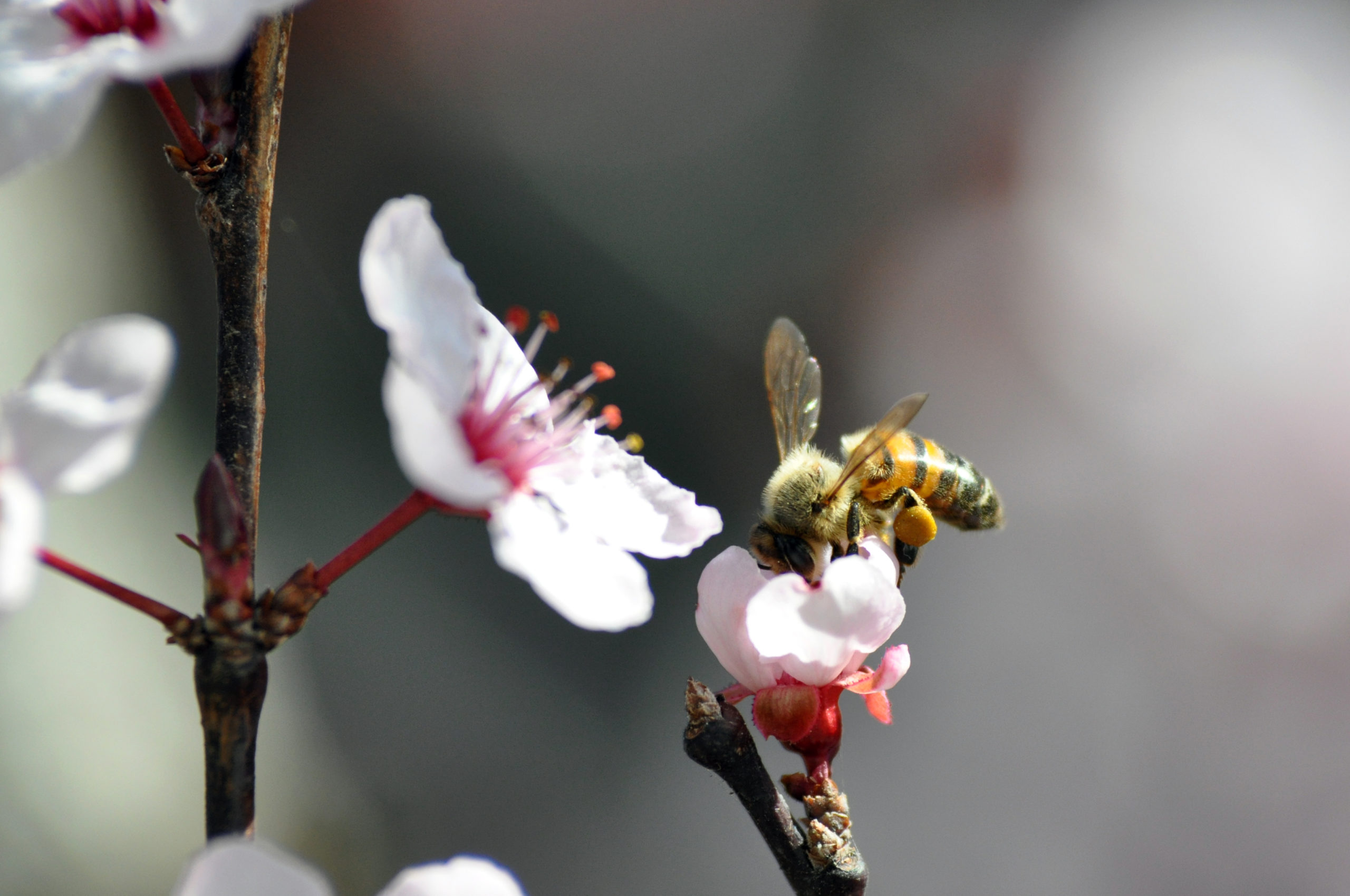
0 Comments
Trackbacks/Pingbacks